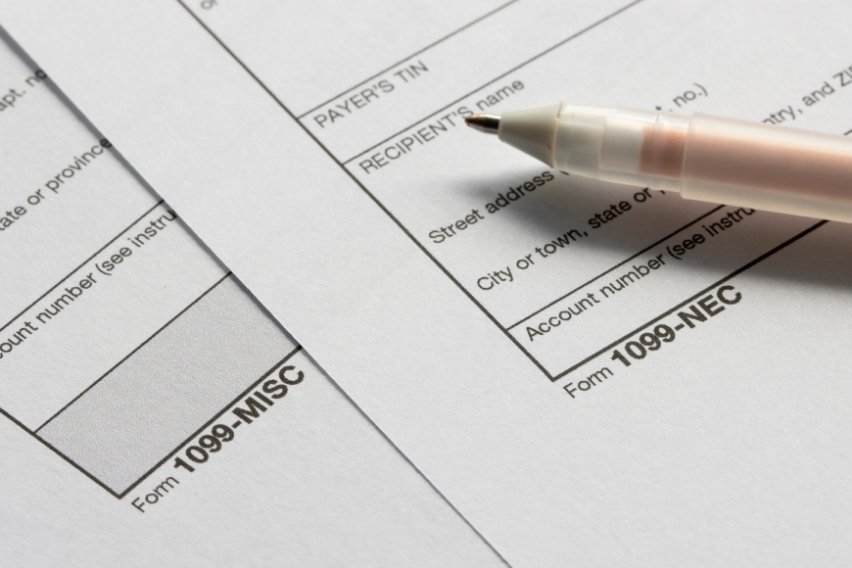10 Rental Property Tax Deductions

If you are a rental property owner, you can claim certain tax deductions for your rental property. There are several deductions rental business owners can take advantage of, each of which will lower the amount of tax you have to pay to the IRS each tax year and help you save money.
Key Takeaways
- Using tax deductions as a rental property owner will reduce the amount of tax owed to the IRS each year.
- Deducting mortgage interest, property taxes, depreciation, maintenance, insurance, and other costs helps property owners save money.
- Many professional services related to rental properties are tax deductible, such as legal fees and tax software.
- Certain costs like fines, uncollected rent, and personal expenses cannot be deducted.
Table of Contents
- 10 Tax Deductions for Rental Property
- What Rental Property Expenses Are Not Tax Deductible?
- Take Your Tax Preparation to the Next Level With FreshBooks
- Frequently Asked Questions
10 Tax Deductions For Rental Property
Tax deductions are legitimate, legal expenses that can be claimed to reduce your rental property tax payments to the IRS. The most common deductions are listed below.

1. Mortgage Interest
A mortgage interest deduction deduction is among the most common IRS rental property tax deductions, and is usually fully deductible. Called the “home mortgage interest deduction” or HMID, this tax break allows homeowners, including rental property owners, to subtract the mortgage interest payments made to their bank or private loan lender. This tax break could save you thousands of dollars at tax time.
Note that if you were to rent out part of your home, the mortgage interest can be allocated between the primary home (on a Schedule A form) and the rental part (on a Schedule E form).
2. Property Taxes
Property taxes may be deductible from your income tax bill once you have been taxed on the value of your home and any other real estate you own. These taxes are paid starting on the date of the property purchase. The type of taxation depends on the state that you live in.
3. Depreciation
Tax deductions for rental property owners include the amount of market value loss, along with the cost of upkeep and improvement of the property, which is considered part of an income-earning rental business endeavor. Residential rental properties can be depreciated over 27.5 years. The IRS allows a specific amount, usually 3.636%, to be deducted from your annual taxable rental income as a depreciation tax break.
Improvements to the property and their associated costs can also be depreciated, when they add to its value and usefulness and are expected to last for over 1 year, like updating the electrical system or putting on a new roof. Those costs can be segregated into different depreciation schedules and depreciated quicker than the main building.
4. Maintenance and Repairs
Maintenance and repair costs are deductible expenses for your rental property if they are necessary and ordinary operating expenses. Routine maintenance must be necessary and reasonable, it must keep your property in rentable condition but all maintenance and repairs must not add significant value to the property.
5. Insurance
Having insurance is a smart idea for any property owner and is often mandated by lenders and banks before a mortgage can be finalized during any property purchase. The IRS considers basic homeowners insurance premiums, as well as special liability insurance, to be normal rental expense costs and allows these costs to be deductible expenses. Similarly, property value losses due to theft or natural disasters are also deductible in many cases.
6. Travel and Transportation
Some landlords have several properties and need to travel often to visit them. These transportation and travel expenses are deductible, the same way traveling for any job would be. You may deduct costs incurred traveling to collect rent, showing your rental property, and working on your property. Other expenses like parking, tolls, airfare, hotels, rented cars, etc. may also be added in some cases.
7. Utilities
If you are a landlord who covers bills like electricity, heat, internet, cable, and gas for your tenants, you can deduct these costs on your tax return. If you do not pay these bills for your tenants, then you cannot claim them for your rental property tax deductions.
Some client/tenant agreements will have the landlord pay for these services to claim as deductions, and then the client reimburses them, which needs then be claimed as taxable income. This arrangement may be more or less helpful for you, depending on your individual case.
8. Employees’ and Contractors’ Wages
When your rental property needs repairs and maintenance, you can deduct the cost of hiring an employee or contractor to do the rental home repairs. There is also the option to deduct tools and equipment if you choose to do the repairs yourself.
If you decide to hire somebody as an on- or off-site property manager for your rental properties, their wages and contractor fees can also be deducted at tax time. Worker’s compensation insurance can also be deducted if you have employees who help you with the rental real estate.
9. Legal and Professional Fees
Record-keeping costs, tax software or tax professional costs, lawyer fees, real estate agent commission fees, and other professional services fees related to rental property paperwork, finances, legal issues, and more can be deducted, as long as they are related to the business of renting out your property for financial gain.
You may also be able to write off financial advisor fees if you are discussing your rental property, as well as the legal costs incurred during eviction processes.
10. Advertising Costs
If you advertise your rental property online, in newspapers, on the radio, or elsewhere, and it has cost you money to do so, you can deduct the costs of advertising from your taxes. This also includes the cost of printing “For Sale” signs, posting printed ads around college campuses, and any other related advertising costs for your rental property business.
If you are a property owner or landlord exploring ways to optimize your financial strategy, check out the following video to find out how FreshBooks can make tax preparation easier for you, specifically streamlining the process of managing and maximizing landlord tax deductions.
What Rental Property Expenses Are Not Tax-Deductible?
Some items that are not allowable rental property tax deductions include:
- Tenant-paid expenses, like if your tenants pay their own cable bills or electricity bills
- Improvements to the property are not deductible when you pay for them, but you can depreciate them over time to count the expense
- Penalties and fines of any kind cannot be deducted
- Land does not depreciate in value, so you cannot claim depreciation on any land value
- Personal expenses that are unaffiliated with the rental property
- Expenses that incur when the property is not available for rental
Take Your Tax Preparation to the Next Level With Freshbooks
When you own a rental property, it’s important to keep good records of all expenses, with rent receipts, logs, diaries, appointment books, etc. to back up your expense claims. FreshBooks accounting software helps small business owners keep track of every expense, categorizing them to make it easier to get every eligible deduction during tax time.
Ready to streamline your small business accounting processes and make life easier for yourself? Try FreshBooks for free, and find out how easy tax preparation can be. Along with making your investment property deductions easier, FreshBooks helps track expenses and keeps collected payments organized.
For more information about the deductions available to you and how to use them, see our article on Small Business Tax Deductions.

FAQs About Rental Property Tax Deductions
The answer to the question, “What are the tax deductions for a rental property?” is clearly laid out on the IRS website. If you have further questions regarding rental property tax deductions, our frequently asked question section may have the answer you’re looking for.
Are rental property tax deductions different from those for personal property?
Yes, rental property tax benefits are similar to small business tax deductions. Rental income is treated as income, and deductions are related to your potential earnings as a small business owner. Personal property can include livestock, RVs, cars, or equipment, while only permanent structures are considered rental properties.
Are property management fees tax-deductible for rental properties?
Yes, if you hire somebody to manage your property, the fees for their professional services are tax-deductible in the USA. This includes on-site property managers or off-site management companies. You can also deduct condo fees or other such management, upkeep, or repair fees from your taxes.
Are legal fees associated with rental property tax-deductible?
Yes, legal fees can be tax-deductible, as long as they are directly related to the property rental. This includes paperwork needed for rentals or evictions, or other necessary expenses related to renting out properties, and any fees needed to pay for resolving tax issues related to your rental property.
Can I deduct utilities like electricity, water, and internet for my rental property?
Yes, you can deduct utilities in some cases. It depends on what is included in the rental cost for your tenants. If you pay these bills, the amount can be deducted. If your tenant pays for their own utilities, then they are not tax deductible. If you pay for utilities and are reimbursed by the tenant, these payments add to your year’s total rental property income amount.
How do I handle rental property tax deductions if I use the property for personal use as well?
You can only deduct expenses related to your rental and must divide your expenses between personal use and rental use. As per the IRS, if your rental use expenses are more than the gross rental income limitations, you may not be allowed to deduct all of your rental expenses. You may be able to carry forward the expenses to the next tax year.
Are losses from rental properties tax-deductible?
Yes, a “Real Estate Loss Allowance”, allows those with 10% interest in a rental property to claim a deduction of up to $25,000 annually in rental property losses against their regular income, as long as they have a gross income of $100,000 or less, and they are not a real estate professional. The real estate professional status allows for additional deductions against their regular income.
More Useful Resources
Explore our diverse tax deduction guides catering to various niches. From small businesses to real estate agents, find valuable insights to optimize your tax savings.
About the author
Sandra Habiger is a Chartered Professional Accountant with a Bachelor’s Degree in Business Administration from the University of Washington. Sandra’s areas of focus include advising real estate agents, brokers, and investors. She supports small businesses in growing to their first six figures and beyond. Alongside her accounting practice, Sandra is a Money and Life Coach for women in business.
RELATED ARTICLES


 Tax Deductions Cheat Sheet for 2025
Tax Deductions Cheat Sheet for 2025 Tax Deductions for Homeowners: 6 Tax Breaks You Should Know
Tax Deductions for Homeowners: 6 Tax Breaks You Should Know Square 1099 Tax Form: Filing Requirements and Steps
Square 1099 Tax Form: Filing Requirements and Steps Shopify 1099-K Tax Form: Filing Requirements and Steps
Shopify 1099-K Tax Form: Filing Requirements and Steps Upwork 1099 Tax Form: Filing Requirements and Steps
Upwork 1099 Tax Form: Filing Requirements and Steps Etsy 1099 Tax Form: Filing Requirements and Steps
Etsy 1099 Tax Form: Filing Requirements and Steps